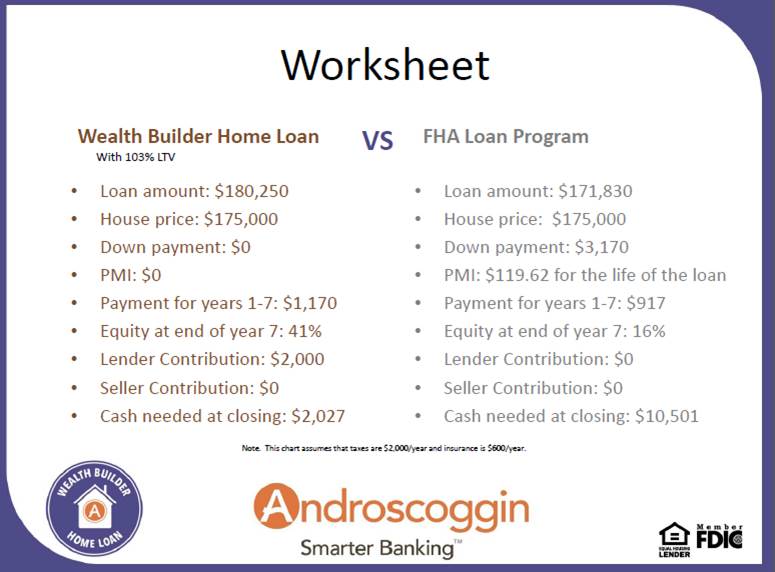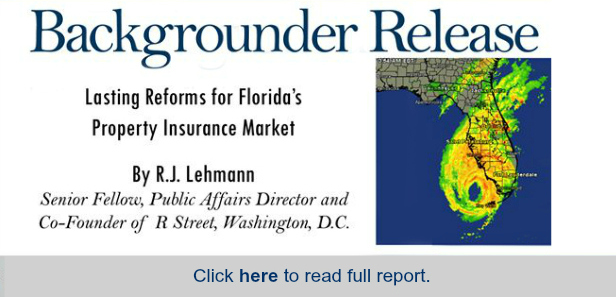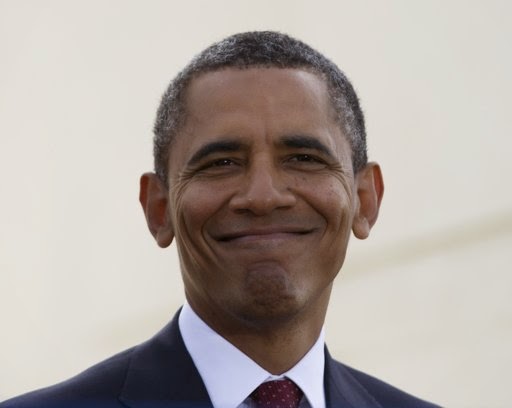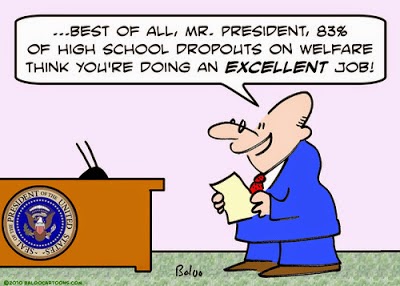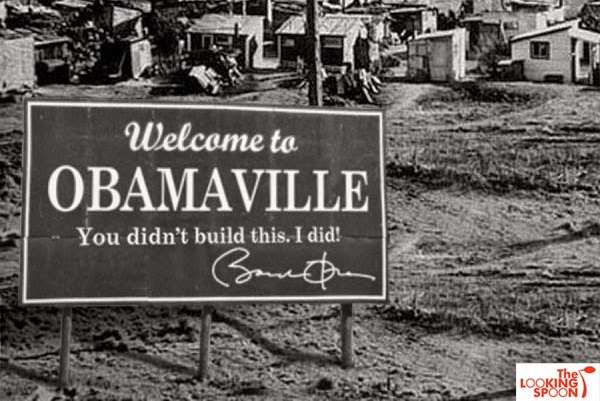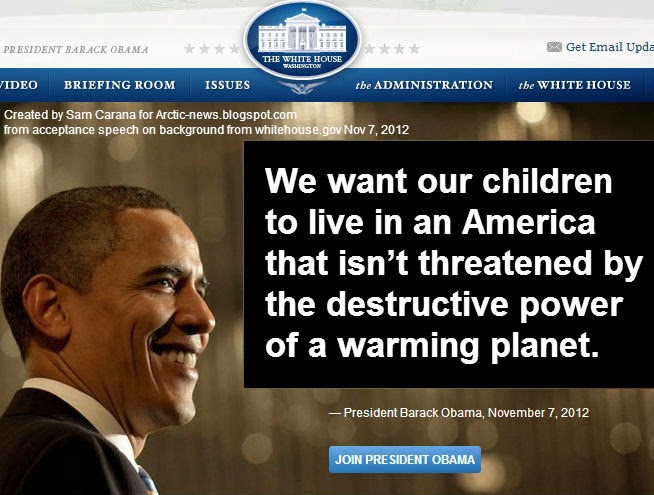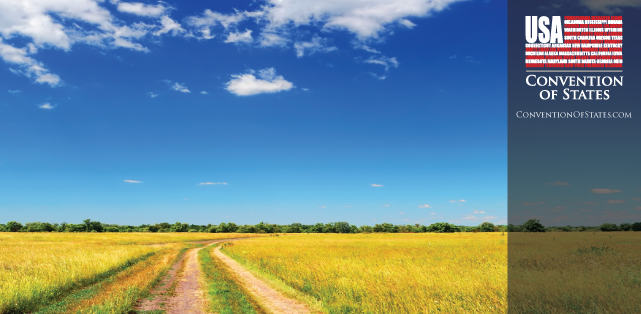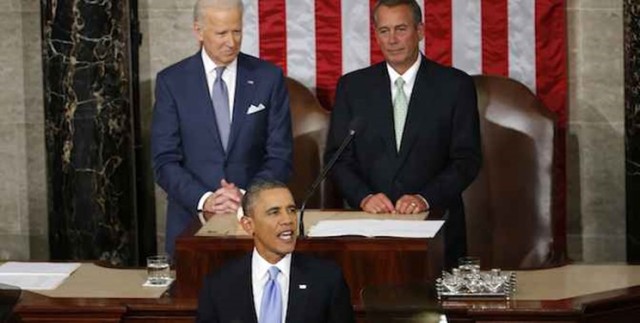Dear Ultra-Rich Man: An ultra-middle-class man’s letter to Nick Hanauer by Max Borders
You probably don’t know me, but unlike you, I am one of the 99 percent, a proud and unapologetic advocate of free and open markets. I’m writing you because your letter to other rich guys has gone viral. Each time I saw it, I thought, “Somebody should respond to this guy.” I got tired of waiting. So I hope you’ll read this. I leave your prose in italics so I can address your major points in turn.
You probably don’t know me, but like you I am one of those .01%ers, a proud and unapologetic capitalist.
I admit I’m already suspicious. If you were a proud and unapologetic capitalist, I doubt you’d write the things you did. Now, maybe you’re an unapologetic investor, or even an entrepreneur. But to my mind, a capitalist is one who understands and advocates for a system of free and open markets—as opposed to other economic systems—such as State capitalism, crony capitalism, mercantilism, or Keynesian interventionism. If by capitalist, you mean, “guy who likes to make money in business,” then great. I just want to make sure we’re not talking past each other.
I have been rewarded obscenely for my success, with a life that the other 99.99 percent of Americans can’t even imagine. Multiple homes, my own plane, etc., etc.
Did you create something of value for people, or make it possible for people to get something of value in return? Did they willingly hand over what economist Walter Williams calls “certificates of performance”? Or did you take subsidies or lobby the government for competitive advantages? If the former, I certainly don’t begrudge you your airplane. If the latter, then you are a crony capitalist (crapitalist), or rent-seeker. There is a big difference.
I was so excited by the potential of the web that I told both Jeffs that I wanted to invest in whatever they launched, big time. It just happened that the second Jeff—Bezos—called me back first to take up my investment offer. So I helped underwrite his tiny start-up bookseller. The other Jeff started a web department store called Cybershop, but at a time when trust in Internet sales was still low, it was too early for his high-end online idea; people just weren’t yet ready to buy expensive goods without personally checking them out (unlike a basic commodity like books, which don’t vary in quality—Bezos’ great insight). Cybershop didn’t make it, just another dot-com bust. Amazon did somewhat better. Now I own a very large yacht.
What if the other Jeff had called first? You might be living next door to me. The point is not that you were successful, but rather that—at that time—the capital you gave to either Jeff could not be used for any other purpose. As it happens, Jeff Bezos was a good steward of your capital. He has created value for hundreds of millions of people, so both you and he have since been rewarded for being good stewards of capital. Without either of you, there would have been no Amazon (and thus no Amazon Prime, which lets me watch good TV cheaper than cable).
What sets me apart, I think, is a tolerance for risk and an intuition about what will happen in the future. Seeing where things are headed is the essence of entrepreneurship. And what do I see in our future now? I see pitchforks.
We might quibble about the essence of entrepreneurship. You get it partially right, at least. But if you see pitchforks, it’s only because egalitarian ideologues are spreading bad economic ideas and fomenting the worst instincts in people: cruder emotions such as envy. Yet the poorest quintile of Americans is wealthier and healthier than two-thirds of the entire world. We should not be brandishing pitchforks at you. We should keep on sending you our certificates of performance—if, that is, you keep satisfying our wants and needs, and solving our problems.
At the same time that people like you and me are thriving beyond the dreams of any plutocrats in history, the rest of the country—the 99.99 percent—is lagging far behind.
Guess what? I, too, am thriving beyond the dreams of any plutocrats in history! Later, in this very letter, you admit that on the things that matter, there isn’t really much of a gap between us at all. You write, “I earn about 1,000 times the median American annually, but I don’t buy thousands of times more stuff. My family purchased three cars over the past few years, not 3,000. I buy a few pairs of pants and a few shirts a year, just like most American men.” Looks to me like we’re pretty equal where it counts. Because when it comes to consumption power, we little guys also have it made, yachts notwithstanding. (You’re more likely to find me on a pontoon boat. That’s okay.) You leave those surpluses to be used as capital—hopefully by other able entrepreneurs.
The divide between the haves and have-nots is getting worse really, really fast. In 1980, the top 1 percent controlled about 8 percent of U.S. national income. The bottom 50 percent shared about 18 percent. Today the top 1 percent share about 20 percent; the bottom 50 percent, just 12 percent.
Accepting this statement on its face: So what? These statistical abstractions tell us nothing about how well people live today compared with the past. The more important questions are: Compared to 1980, is any one of us more likely to have greater access to the goods and services we need to live a decent life? Can plebs like me get mobile devices we couldn’t in 1980? Are we living longer than in 1980? Can we buy food, shelter, pants, TVs, transportation—on a website? Is total compensation (including non-wage benefits) more than it was in 1980? (Yes, yes, yes, yes, and yes.)
Now, might any of this have to do with entrepreneurs and investors directing capital to productive uses?
According to Michael Shermer, writing in Scientific American of all places, the American dream is not dead.
The top-fifth income earners in the U.S. increased their share of the national income from 43 percent in 1979 to 48 percent in 2010, and the top 1 percent increased their share of the pie from 8 percent in 1979 to 13 percent in 2010. But note what has not happened: the rest have not gotten poorer. They’ve gotten richer: the income of the other quintiles increased by 49, 37, 36 and 45 percent, respectively.
Not only that, but all quintiles have access to Netflix, Trader Joe’s, and mobile devices.
Now, there are desperately poor people out there. But worrying about what the desperately poor lack is very different from worrying about what the ultra-rich have. Surely guys like you can find creative solutions to helping the least advantaged without making them dependent on State largess, or without placing any more burdens on business.
Our country is rapidly becoming less a capitalist society and more a feudal society. Unless our policies change dramatically, the middle class will disappear, and we will be back to late 18th-century France. Before the revolution.
This could be true, but not for the reasons you think. Again, there is a big difference between those who lobby politicians to transfer resources into their coffers through subsidies, regulations, and other political means and those who actually serve customers in order to make their lives better. The former should be called “crapitalists,” and there are way too many of them in the world. But crapitalism is a consequence of too much government power, power that ends up on auction. Such was the case in Rome, Paris, and Saint Petersburg. As long as poor people aren’t systematically excluded from entrepreneurial opportunities, the pitchforks will pitch hay.
(Note: Minimum wage laws can exclude poor people from opportunities.)
In fact, there is no example in human history where wealth accumulated like this and the pitchforks didn’t eventually come out. You show me a highly unequal society, and I will show you a police state. Or an uprising. There are no counterexamples. None. It’s not if, it’s when.
Sure there are counterexamples: Singapore. Hong Kong. Switzerland. These days the pitchforks are coming out in societies where the poor don’t have access to real property, collateral, and low-cost legal institutions that help them become upwardly mobile—places like Egypt, Brazil, and Turkey. (See the work of Hernando de Soto). The pitchforks come out not when there is inequality of outcomes, but when political power is being sold to the highest bidder, or put differently, where political powers pick winners and losers and where business and government collude unfairly to become a “monstrous hybrid.” Pitchforks come out when the welfare well runs dry, as in Greece.
Many of us think we’re special because “this is America.” We think we’re immune to the same forces that started the Arab Spring—or the French and Russian revolutions, for that matter.
I agree. We are certainly not immune to populist uprisings. But this is no justification for wealth redistribution or minimum wage hikes, which are likely—revolution or no—to make those with the pitchforks worse off than they would otherwise have been. “People don’t like that other people have gotten rich” is not an argument for confiscating wealth.
The model for us rich guys here should be Henry Ford, who realized that all his autoworkers in Michigan weren’t only cheap labor to be exploited; they were consumers, too. Ford figured that if he raised their wages, to a then-exorbitant $5 a day, they’d be able to afford his Model Ts. What a great idea. My suggestion to you is: Let’s do it all over again. We’ve got to try something. These idiotic trickle-down policies are destroying my customer base. And yours too.
Wait, didn’t you say you were “rewarded obscenely”? Looks to me like your customer base is doing just fine. Do you really want to use the “company town” as the model for the good society? Good luck with that. Now, if we’re being charitable in interpreting you, we might point to companies like Costco that pay more for labor. It works for them. If it works for you, then what’s stopping you? If any such model works so splendidly, people will replicate it.
Finally, don’t you think it’s a bit rich (no pun) to call “trickle-down” policies “idiotic” and then propose them in the same breath? What’s more “trickle-down,” after all, than the notion that raining free money from on high—whether via fiat wages or welfare checks—will “stimulate” a middle class to burgeon? If anything, it will stimulate them to do more of less. These tired Keynesian nostra only end up in perfectly good capital being misallocated. (Burning planks from a ship at sea might keep you warm for a night, but it won’t get your ship to port.)
It’s when I realized this that I decided I had to leave my insulated world of the super-rich and get involved in politics.
Why not help people with charity? Why not create better-faster-cheaper goods? Politics, at its root, is just some group compelling other people with the threat of violence to try to refashion the world as they see it in their minds. If that’s not inequality, I don’t know what is. But more importantly, you have already demonstrated that you can make the world a better place. It is better with Amazon than without. People are employed. I buy products and services from you that enrich my life. Thank you. Now, if you have more money than you can spend, why not build more businesses that solve more human problems? Why not engage in superphilanthropy instead of amateur economics?
I wanted to try to change the conversation with ideas—by advancing what my co-author, Eric Liu, and I call “middle-out” economics. It’s the long-overdue rebuttal to the trickle-down economics worldview that has become economic orthodoxy across party lines—and has so screwed the American middle class and our economy generally. Middle-out economics rejects the old misconception that an economy is a perfectly efficient, mechanistic system and embraces the much more accurate idea of an economy as a complex ecosystem made up of real people who are dependent on one another.
So far neither you nor Mr. Liu have demonstrated anything to suggest you understand the nature of the economy as an ecosystem. You seem to be selling the same old ideas that brought us mechanistic economics like “priming the pump” or “fixing” the economy with economic stimulus, fiscal transfers, and price controls—none of which takes into account effects on real flesh-and-blood people involved in that complex ecosystem, and instead reduces them to macroeconomic abstractions. (I’m bracing for more Keynesianism from you, Mr. Hanauer.)
Which is why the fundamental law of capitalism must be: If workers have more money, businesses have more customers. Which makes middle-class consumers, not rich businesspeople like us, the true job creators. Which means a thriving middle class is the source of American prosperity, not a consequence of it. The middle class creates us rich people, not the other way around.
Ah, more magical thinking from Keynes. First, it’s simply a myth that the American middle class is disappearing. And Mr. Hanauer: You get things entirely wrong about the sources of prosperity. Most of the planet is poor, in fact, though it’s getting richer all the time.
The question we have to ask ourselves—inequality notwithstanding—is: Why did the rich countries get rich to start with? If we go by your logic, all we have to do to make sub-Saharan Africa rich is transfer massive amounts of wealth there until a “middle class” has enough money to go buy stuff. (Oh yeah, that didn’t work.) But the arrow of causation doesn’t run that way. Instead, wealth originates from people like the pillow makers in your family—perhaps starting small—operating within stable rules, creating goods and services that people value enough to trade their time and labor for it—that is, if they have nothing else to trade. Economies of scale and specialization kick in. Then, like a great coral reef, the economic ecosystem emerges through distributed processes of interdependency that flow from within simple rules (such as property, prices, and profit-or-loss).
Of course, time and labor are not enough to make society wealthier. If they were, then we really could dig ditches and fill them up again, as Keynes suggested, to become rich. Yes, entrepreneurs figure into a wider economic ecosystem that includes consumers. But Hong Kong did not become the richest rock on earth because of wealth transfers. It became rich because entrepreneurs and investors did not squander capital, but rather used it in wildly diverse ways to expand the base of capital goods so entrepreneurs could produce consumer goods and services—better, faster, and more cheaply. It started with little sweatshops and ended up with megacompanies. But this required savings, investment, ideas, innovation and entrepreneurship. Lather, rinse, repeat. You can try to shortcut this process with Keynesian manna. But rich guys have to get rich by creating wealth first.
So, without Henry Ford, no company town. Without a stable business environment, no Henry Ford. Yes, the open market is a virtuous ecosystem, but it is not improved by zero-sum (or negative sum) wealth transfers like you’re proposing. The ecosystem is seeded with ideas that make people more productive. More productivity creates surpluses that end up as investment in more capital goods or more consumption goods—all of which feeds better ideas that make people more productive and create further surpluses. Creative entrepreneurs, willing to take risks, get the ball rolling (not the other way around). They are the prime movers.
On June 19, 2013, Bloomberg published an article I wrote called “The Capitalist’s Case for a $15 Minimum Wage.” Forbes labeled it “Nick Hanauer’s near insane” proposal.
Forbes was right. I’m sorry. But it is near insane. Price controls don’t work in the energy markets. Price controls don’t work in healthcare. Why would price controls work in labor markets? Your proposal amounts to nothing more than price controls. But prices are information signals wrapped in incentives. When you try to control prices, you’re distorting both the information and the incentives.
You go on to brag that your idea saw implementation in Seattle. I’m surprised a businessman of your caliber would do that. You see, we have to look at outcomes, not inputs. I know, you said you left business to go into “politics.” And politics is that bottomless well of aspirations in which people reward themselves for good intentions—that is, for getting things passed. But what are the effects of a policy?
Back in the business world, people have to live with the consequences of politics. And so far, the minimum wage in Seattle has already resulted in perverse effects. As businesses are forced to adapt—cutting back labor, hours, and substituting labor with technology—your policy hastens this process. You may think you’re making big companies pay their “fair share,” but you’re hurting small businesses: restaurateurs with slim margins, someone opening a little child care center, maybe a guy who runs a body shop. And more importantly, you’re depriving people of opportunities. When you raise the minimum wage by 25 percent, you are raising the costs of hiring a minority teenager by 25 percent. If the minimum wage makes it too costly to open another store, the business owner won’t open another store.
The thing about us business people is that we love our customers rich and our employees poor.
This doesn’t sound like a sentence written by a businessperson at all. Labor, like any other market phenomenon, has a market value. That may sound crass. But it’s true. If it weren’t true, we could set the minimum wage to $150 per hour. Now, it may be that some companies want to pay their work forces more than comparable wages in an area—perhaps in exchange for loyalty, or so that they’ll spend more at the company store. Maybe they attract better, more reliable workers. For some employers, it’s worth it: They value the labor that much based on their particular circumstances. In North Dakota, Walmart employees are being offered $17 per hour. Why? Labor supply and demand. For other companies, it might be a form of charity. But the truth is, we don’t know from one company to the next. One thing we do know, however, is that blanket policies don’t do a good job of determining which companies have which circumstances.
Every time the capitalists said exactly the same thing in the same way: We’re all going to go bankrupt. I’ll have to close. I’ll have to lay everyone off. It hasn’t happened. In fact, the data show that when workers are better treated, business gets better. The naysayers are just wrong.
The most comprehensive study of minimum wages is by Neumark and Wascher (and you can buy it on Amazon). These scholars have determined that the net effects of minimum wage laws over the years have been primarily deleterious. (And predictably so.) Treating an employee “better” may or may not have positive effects for a given business. But the thing about entrepreneurs is they are highly attuned to such opportunities. And if such opportunities are a win-win, they will pursue them. But the net effect of assuming you or anyone else knows what’s best for all companies has been shown to be negative in theory and in practice.
Most of you probably think that the $15 minimum wage in Seattle is an insane departure from rational policy that puts our economy at great risk. But in Seattle, our current minimum wage of $9.32 is already nearly 30 percent higher than the federal minimum wage. And has it ruined our economy yet?
$9.32 versus $15.00? That’s a big difference. Normally politicians set minimum wages right around where they might otherwise be—say in a large, gentrified area like Seattle—and so the ill effects go away pretty quickly as companies adapt, if they need to at all. Politicians do this to create the illusion that they are making things better with policy, when actually they are getting out in front of a trend in order to take credit for it. But if entry-level wages are hovering around $9 in Seattle or San Francisco, they aren’t in Stockton (where the unemployment rate is 14 percent). Indeed, no one should believe for a second that a jump of more than 50 percent is going to be easy for companies to adapt to, and won’t require wrenching ill effects. Again, the labor pool and conditions are heterogeneous, so blanket policies are ill-advised. Remember, you said yourself the economy is like an ecosystem, not a machine. Wage rates can’t be set by a single rheostat.
The two cities in the nation with the highest rate of job growth by small businesses are San Francisco and Seattle.
Raise it to $15 tomorrow and you’ll slam on the brakes. Or you’ll see lots of small businesses with fewer employees or just the owners.
Guess which cities have the highest minimum wage? San Francisco and Seattle. The fastest-growing big city in America? Seattle.
My sources show my home city Austin is the fastest growing, despite a minimum wage of $7.25. Other major Texas cities—sucking in Californians by the day—have similar minimum wages. But let’s not facts get in the way of your hypothesis.
Fifteen dollars isn’t a risky untried policy for us. It’s doubling down on the strategy that’s already allowing our city to kick your city’s ass.
Did I mention I live in Austin, one of four Texas cities among the 10 fastest growing? How is this kicking our ass? While San Francisco’s unemployment rate may be low and its small start-ups doing okay for now, the rest of the state is a mess. You’ll have to look at other factors besides wage rates to see why.
It makes perfect sense if you think about it: If a worker earns $7.25 an hour, which is now the national minimum wage, what proportion of that person’s income do you think ends up in the cash registers of local small businesses? Hardly any.
It would make perfect sense if there weren’t so many counterexample cities that completely belie your claim—many here in Texas. But what’s more, the United States already has an income support system called the Earned Income Tax Credit (EITC). That means rich people like you already subsidize wages for workers under a certain income threshold. So it’s not clear to me why shifting the burden directly onto individual businesses is going to create some sort of magic. If your argument is that there should be a bigger EITC, that’s a separate discussion.
Please, please stop insisting that if we pay low-wage workers more, unemployment will skyrocket and it will destroy the economy.
A $15 per hour wage is not likely to destroy the economy. It will certainly destroy prospects for groups like African-American teens, whose unemployment rate currently hovers around 40 percent. Minimum wages don’t destroy the economy, they remove the bottom rungs of the income ladder for people who need to gain skills and experience to be upwardly mobile. And they often raise prices for consumers, including those making low wages.
The most insidious thing about trickle-down economics isn’t believing that if the rich get richer, it’s good for the economy. It’s believing that if the poor get richer, it’s bad for the economy.
It depends upon which straw man you’re beating up here, Mr. Hanauer, but neither of your “trickle down” claims is true. The rich getting richer is an effect, not a cause. The poor getting richer is an effect, not a cause. If all groups are becoming better off—as they have been (I refer you to the Shermer citation above) then the causes of those improvements across quintiles are good for the economy.
Indeed, what is good for the economy—and human well-being—is when people get richer due to becoming more productive, solving more problems, and satisfying more wants and needs. The value of a worker’s effort is determined according to the subjective valuations of individual entrepreneurs in unique circumstances. You can’t possibly know these circumstances, Mr. Hanauer, because you are not treating the economy like a complex ecosystem. How do I know? Because you say…
In order for us to have an economy that works for everyone, we should compel all retailers to pay living wages—not just ask politely.
But again, a “living wage” is a numerical abstraction—detached from any real economic ecosystem. If we were to view the economy as an ecosystem, we would have to reckon with its complexity and heterogeneity. Price controls treat the economy as a static thing that can be jump-started by edicts from a central committee.
[Instead of buying stuff…] I sock my extra money away in savings, where it doesn’t do the country much good.
What makes you think your savings don’t do the country much good? If it’s gaining interest at all, then it most certainly is doing the country good. You seem to be laboring under the mistaken notion that consumption drives production. But consider for a moment that Lord Keynes was wrong. When you save, somebody is going to use that money for something (unless the Fed has other ideas). Now, if you’re just letting it sit in a zero-interest account, or you’re bathing in dollars, I would encourage you to diversify and/or use your savvy to create more wealth for both yourself and the country. If you’re a true capitalist, you know more interest/income is a signal that you’re doing something right—that you’re making the world a better place, even if you’re just leaving your money in the bank.
Bottom line: If you don’t agree, you can always give it away. One wonders why you haven’t.
So forget all that rhetoric about how America is great because of people like you and me and Steve Jobs. You know the truth even if you won’t admit it: If any of us had been born in Somalia or the Congo, all we’d be is some guy standing barefoot next to a dirt road selling fruit. It’s not that Somalia and Congo don’t have good entrepreneurs. It’s just that the best ones are selling their wares off crates by the side of the road because that’s all their customers can afford.
If this were true, Hong Kong would be a backwater, poor as it was 100 years ago. As Nobel Laureate Douglass North said in his prize speech:
The organizations that come into existence will reflect the opportunities provided by the institutional matrix. That is, if the institutional framework rewards piracy then piratical organizations will come into existence; and if the institutional framework rewards productive activities then organizations—firms—will come into existence to engage in productive activities.
And entrepreneurs start firms. In the Congo, piratical organization is rewarded by the institutional matrix. It’s been a corrupt dictatorship for years, so people who take bribes and join the army get the rewards. Make no mistake: Changes to Congo’s institutional matrix—along with the entrepreneurial culture—will give rise to dramatic changes in living standards, as they did in Hong Kong. There are 75 million potential customers in the Congo.
So why not talk about a different kind of New Deal for the American people, one that could appeal to the right as well as left—to libertarians as well as liberals?
Edge of my seat.
If people are getting $15 an hour or more, they don’t need food stamps. They don’t need rent assistance. They don’t need you and me to pay for their medical care.
Raising the minimum wage is effectively no different than raising the corporate tax for welfare benefits for assistance, except that one has greater potential to harm businesses. In both cases, people are getting something for nothing.
If the consumer middle class is back, buying and shopping, then it stands to reason you won’t need as large a welfare state.
How’s that? If fewer poor people are being hired—a la Neumark and Wascher—more poor people will require assistance.
And at the same time, revenues from payroll and sales taxes would rise, reducing the deficit.
If all these positive effects were to come about, how does this address the so-called “problem” of inequality? If you’re correct that all this crazy consumption is going sustainably to push up company revenues (which I doubt), aren’t guys like you still going to get richer under your theory?
There are three main problems with any proposal to raise the minimum wage in lieu of welfare:
First, there are better, more pragmatic proposals out there for a minimum income, including the negative income tax (i.e., expanding the EITC and getting rid of welfare). Charles Murray’s In Our Hands is a good start, though his numbers might need updating. That proposal reduces the direct burden on companies compared with your proposal, because it redistributes after profits rather than before. Minimum wage laws are indifferent to whether a firm is profitable, which makes them dangerous by degree.
Second, any policy that simply transfers wealth can have incentive effects that discourage upward mobility. That being said, I will grant that your proposal would help people avoid “welfare traps” if there were no negative effects on employment. But if your government-set wage rates are pricing people out of the labor market, there will be just as many unemployed workers, if not more.
Third, any such grand compromise ideas about minimum income—as much as we might like to think about them—are very likely not to be implemented. How do you plan to combat the welfare-industrial complex? There are armies of vested interests in the welfare bureaucracy. They will be extremely difficult to send packing.
Capitalism, when well-managed, is the greatest social technology ever invented to create prosperity in human societies. But capitalism left unchecked tends toward concentration and collapse.
I think you might be confused about what capitalism is. If by capitalism, you mean crapitalism, then you’re right. It’s not sustainable. And only checking the State’s power to assist cronies will we rein in the excesses of crapitalism. If by capitalism, you mean free and open markets, then you are simply mistaken. In competitive environments, it’s very difficult for firms to hold on to market dominance for very long. Firms have to consistently deliver on quality and price. Almost all monopolies and cartels are created and shored up by corporate-State collusion. And corporate-State collusion almost always starts with the State trying to “manage” capitalists. Regulation is inherently anticompetitive.
Now there will be resource concentrations in a free and open market, as with any natural system, but they too are difficult to maintain over time. In other words, there is incredible churn at the top—because only the best stewards of capital can stay there.
My family, the Hanauers, started in Germany selling feathers and pillows. They got chased out of Germany by Hitler and ended up in Seattle owning another pillow company. Three generations later, I benefited from that. Then I got as lucky as a person could possibly get in the Internet age by having a buddy in Seattle named Bezos.
You may feel guilty about this. After all, your forebears were real value creators. Maybe you inherited a fortune and got lucky knowing Jeff Bezos. Maybe you really aren’t that good at predicting the future, identifying trends, etc.—just lucky. Maybe Bezos just called you first and you simply rode the wave. Still, we shouldn’t begrudge you your fortune, any more than we should pity a guy who loses at the tables.
Things get tight for me and my family. We’re trying to figure out how to fix the fender on my car (my fault) and renovate the old house we just bought. But at least we’ve got a car to fix. We’ve got a house to fix up. We eat nutritious food. My son has a Kindle Fire. And my wife and kid are about the best family a guy could have. We don’t have much, but we have enough to make Louis XVI positively green.
Yeah, you might be lucky, Mr. Hanauer. But so am I.
Max Borders is author of Superwealth: Why we should stop worrying about the gap between rich and poor, which you can buy for your Kindle at Amazon.

ABOUT MAX BORDERS
Max Borders is the editor of The Freeman and director of content for FEE. He is also co-founder of the event experience Voice & Exit and author of Superwealth: Why we should stop worrying about the gap between rich and poor.



